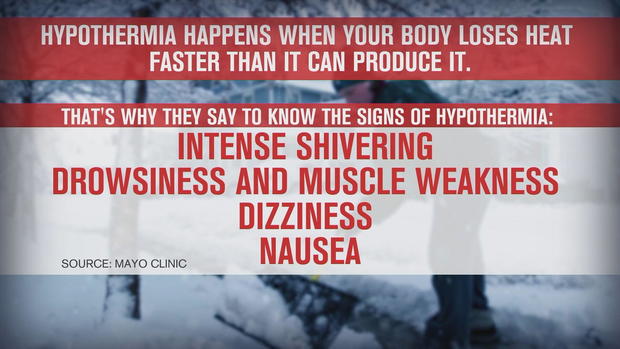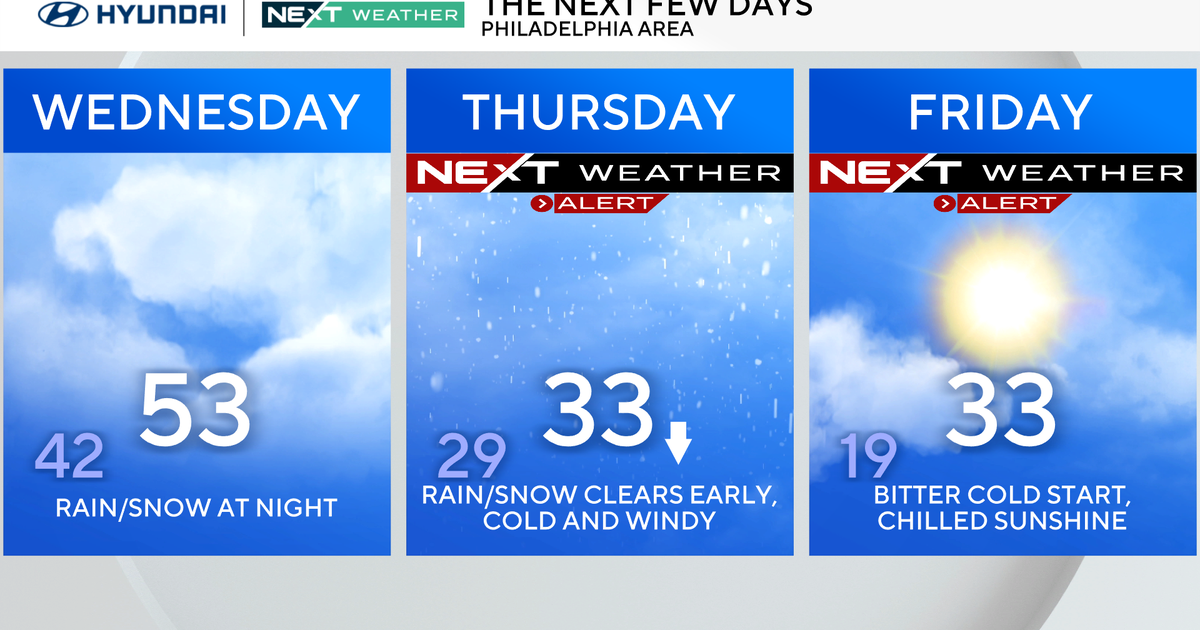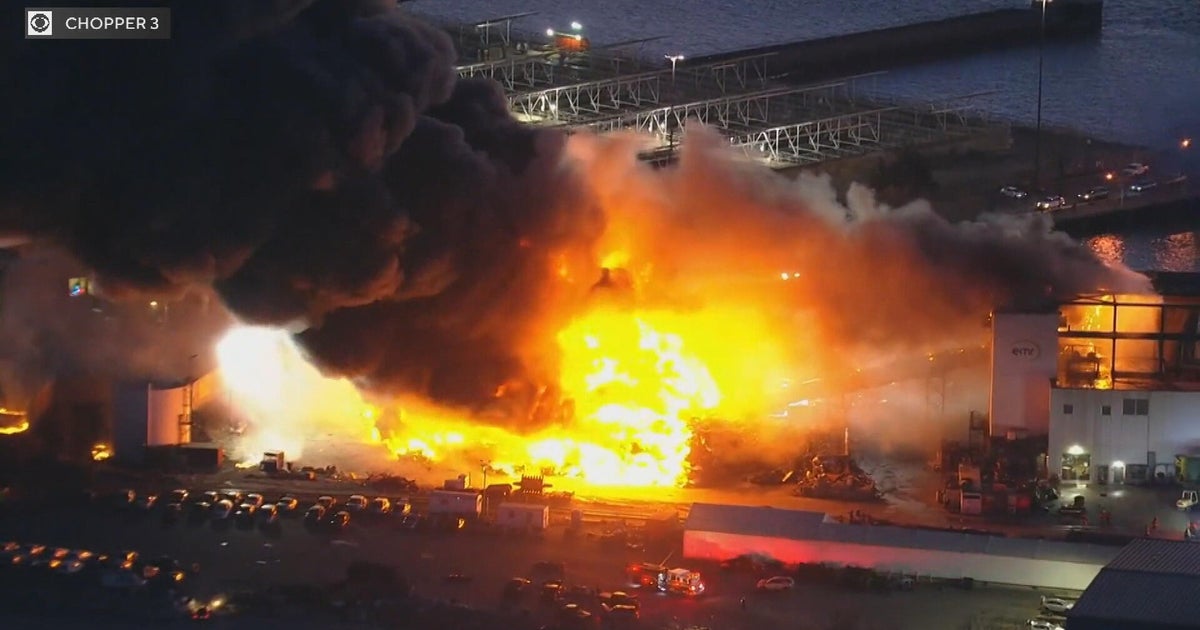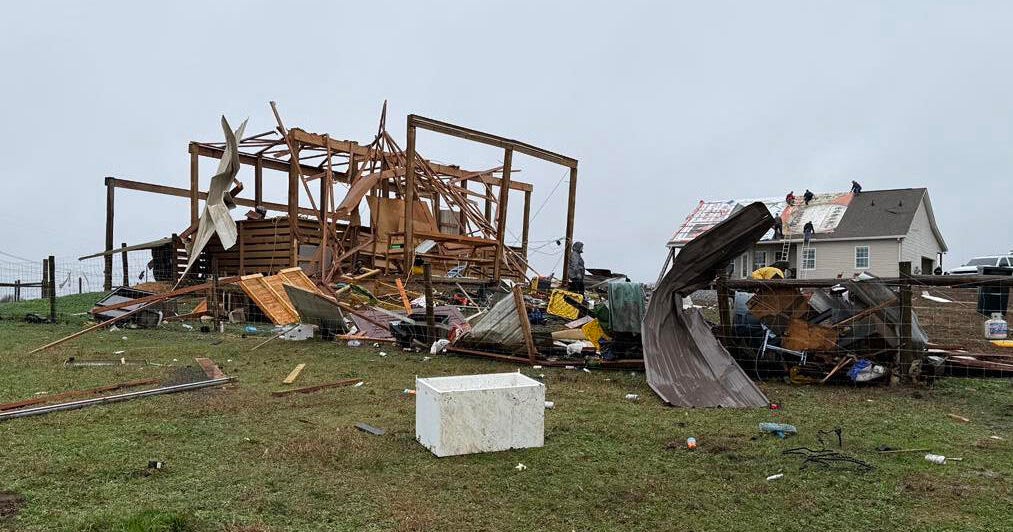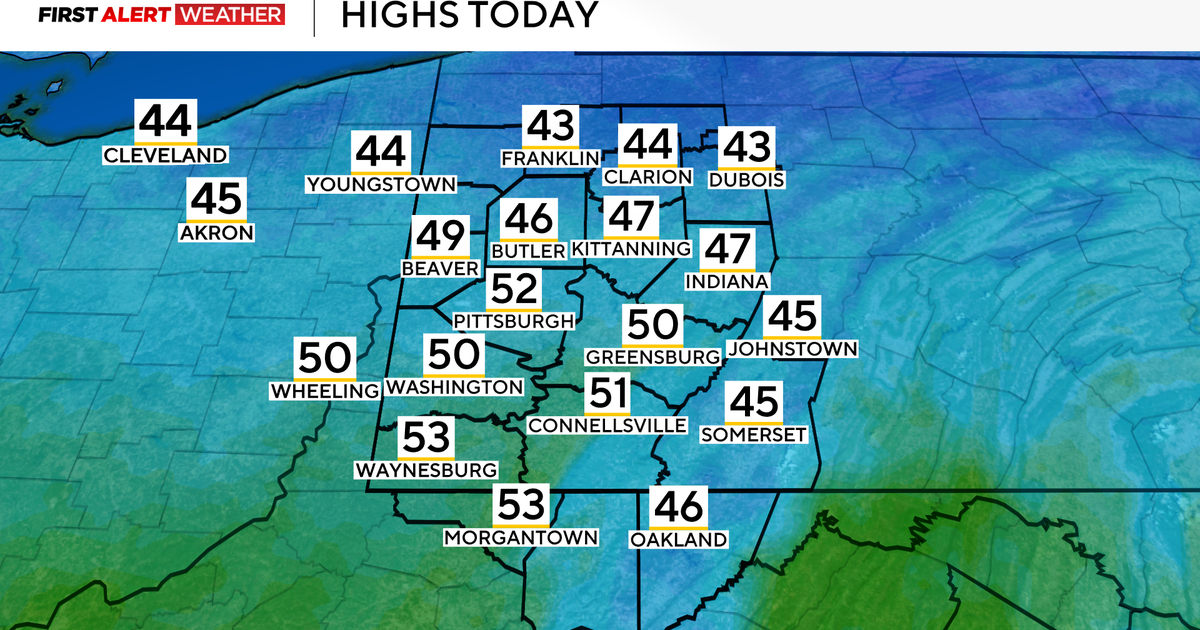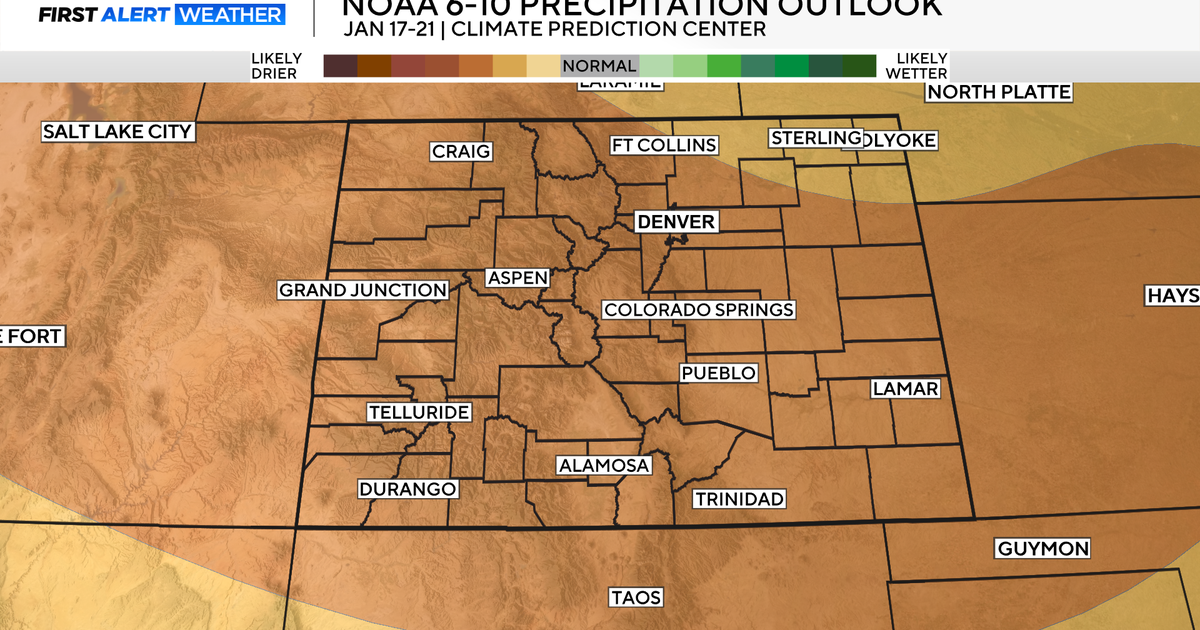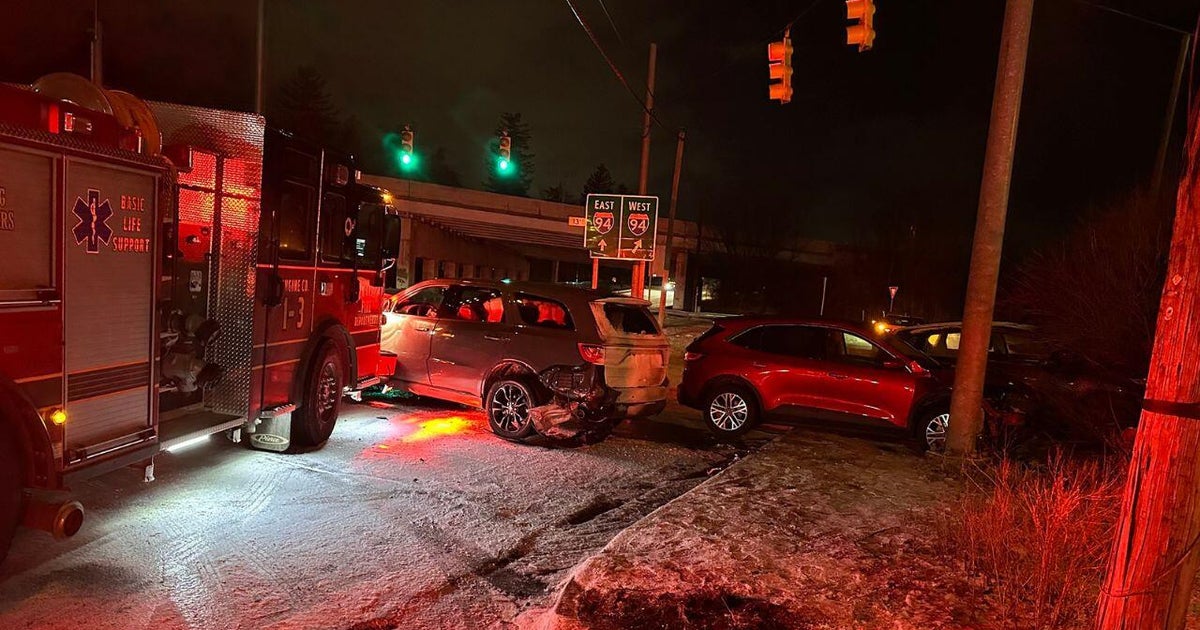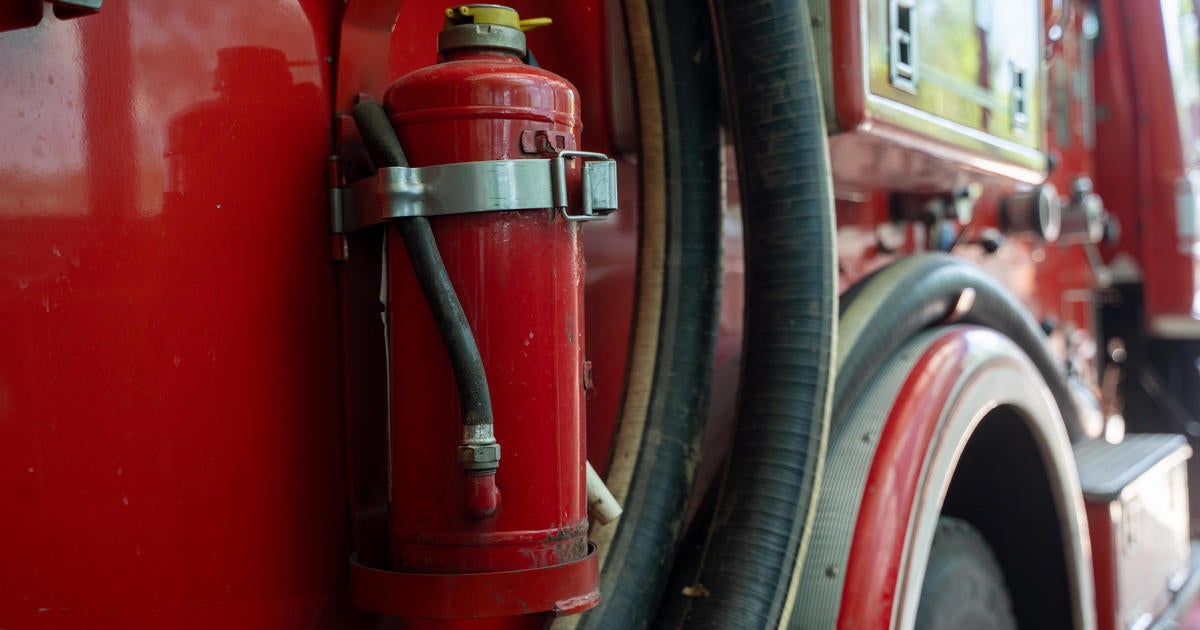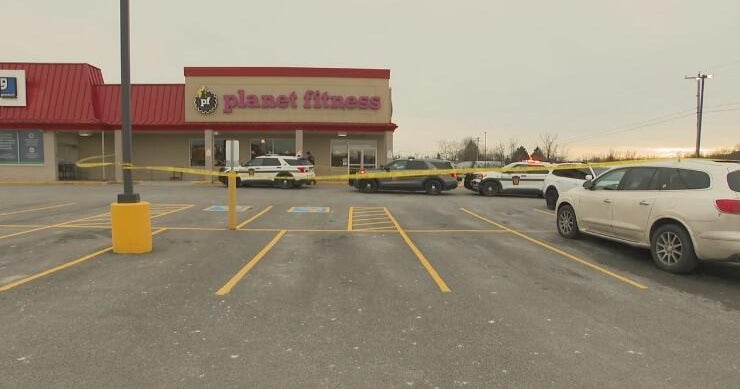New Jersey doctor warns about potential weather-related falls and hypothermia
PHILADELPHIA (CBS) -- The cold, snowy and icy weather is potentially dangerous. This is the time of year when people slip and fall or experience hypothermia.
There have been reports of people with broken bones and aching backs from shoveling snow.
"I almost fell twice," Krystle Valerio said.
Sidewalks that were cleared of snow early turned slushy and icy.
"It's just making it impossible to move around," Steve Warkonyi said.
"They're really icy. If people shoveled and didn't put ice melt down it's slick," Valerio said.
READ MORE: How are the roads? Wet, slushy mess remains after snow cleared on Pa., NJ streets and highways
Doctors said it can be safer to move from the cleared pavement onto the snow.
"Weather related injuries would be falls -- people slipping on black ice -- a lot of orthopedic injuries including hip fractures, spinal fractures, head injuries," said Dr. Nicole Tyczynska, who's works at Virtua Our Lady of Lourdes Hospital.
In the emergency department at Virtua Our Lady of Lourdes Hospital when ice and snow arrive, so do extra patients.
"Anytime there's a storm, anytime there's inclement weather we see a lot of injuries," Dr. Tyczynska said.
In addition to broken bones, emergency departments are also expecting to treat people with injuries related to the Arctic blast that will follow the snow.
"This can start to impact somebody that is out in the cold in as few as several minutes, depending on how cold and how windy it is," said Dr. Christopher Bazzoli, who works as an emergency medical physician, said.
Prolonged exposure to cold weather can cause hypothermia when your body loses heat faster than it can produce it. That's why they say to know the signs of hypothermia like intense shivering, drowsiness, muscle weakness, dizziness and nausea.
The other cold weather danger is frostbite -- that happens when tissues on our extremities, like ears, fingers, and toes freeze.
RELATED: New Jersey hardware store, landscaping company welcome business rush brought by snowy weather
Tom Reilly said surviving this blast of winter is all about safety.
"I'm just wearing snow boots and walking slow," Reilly said.
It's best to be well equipped. Doctors have said it's important to keep your head and feet covered and warm with our upcoming super cold weather when you're outside and to stay in as much as possible.
